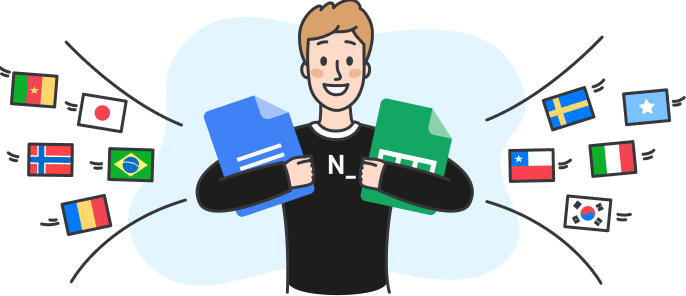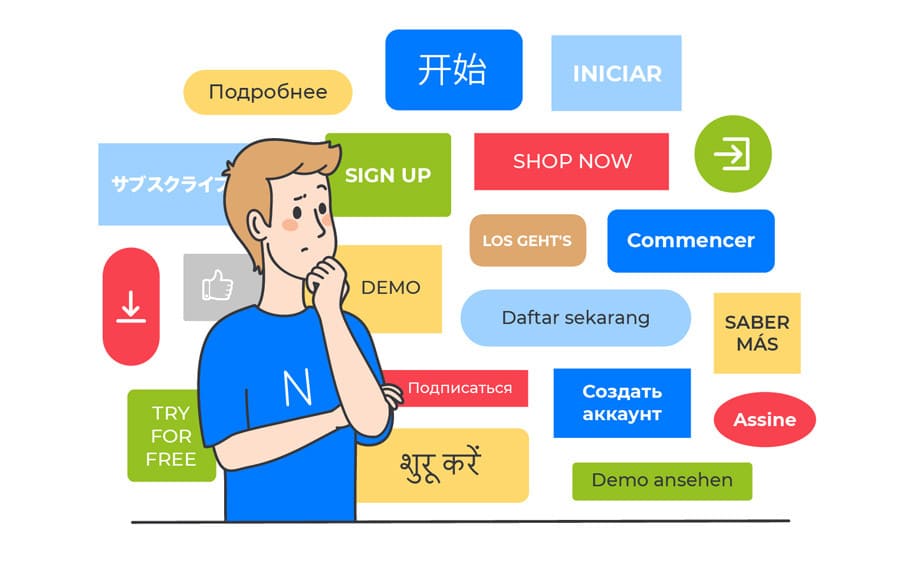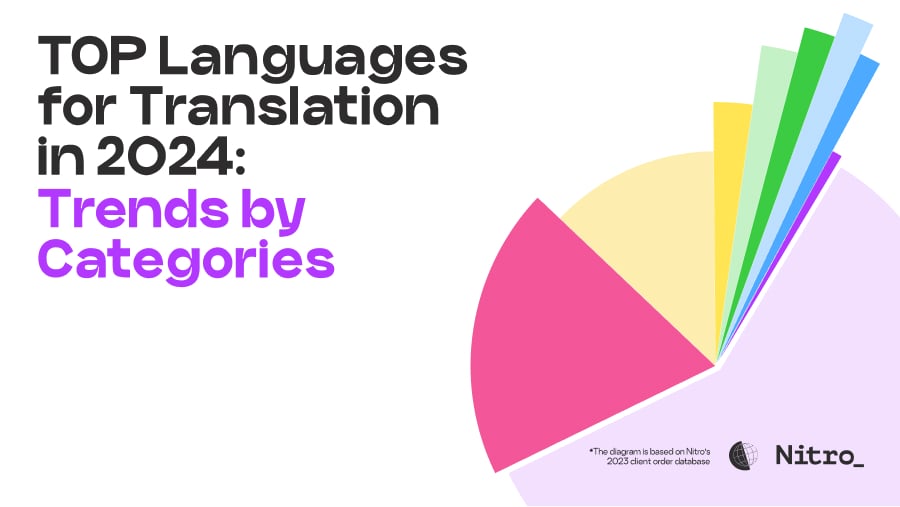Our blog is for executive teams, marketing, product, localization, and localization teams that actively support international business expansion. We share knowledge gained about localization, globalization, and culturalization to assist you in creating informed global growth strategies. Likewise, we do this by drawing on our two decades of experience running a worldwide localization company. 🌎
If you are a company just starting to go global or expanding your localization efforts, then you know that these complicated projects do not manage themselves. Localization requires multiple areas of expertise—technical, linguistic, and project management—to make work happen smoothly, on budget, and at quality. Some businesses outsource the required roles wholly to a vendor, and others hire staff internally to make the localization happen. It is usual for an in-house localization team to include a minimum team of one or more translators and a localization manager. However, many more roles are required as your program expands, file formats become more complicated, and you seek to enter more markets.
Usually, localization initiatives involving outsourcing to an LSP include the following crucial roles:

1. Localization project manager
They handle the entire project, helping you to set up the platform, manage a glossary, assign the translators, control the quality of the translation, keep track of deadlines, and respond to all of your inquiries.
A localization manager's primary duties and competencies include:
- Choosing translators whose experience aligns with your industry, preferred voice, and content goal.
- Checking the accuracy and formatting of the completed translations and adherence to the project deadlines.
- Drafting all necessary paperwork, including NDAs, certificates, invoices, and other documents, during a project.
- Understanding language quirks, such as the Japanese formal address, Arabic numerals, German diacritical marks, Spanish inverted exclamation and question marks, and French extra space before punctuation.
- Helping you set up the process on a cloud platform and being knowledgeable about the technical aspects of localization.
- Using a translation management platform to oversee resource files, translation memory, glossaries, style guidelines, etc.

2. Translator or linguist
These professionals are bilingual linguists. They take care of the translation directly. They collaborate closely with the localization manager to comprehend project requirements and provide correct translations. An editor who reviews texts for style and form can occasionally be added to the translator team to improve the phrasing and make them easier to read and more coherent.
Localization firms choose potential translators from a pool of competent translators for your project. Vendors usually use a strict selection procedure to create this reliable talent pool.
🌍 The translators at Alconost are native speakers with expertise in localization. For our translators, we have the following general requirements:
- Native speaker of the target language
- Two years or more of experience localizing a certain domain.
- Over the course of their translating career, they translated at least 500,000 words.
3. Language Quality Assurance (LQA) tester
Like translators, but paid hourly to test the localized build extensively, check all the screens for linguistic problems, fix any errors found, provide the developer's input, and make the required translation modifications.

4. Resource Manager or Vendor Manager
They find, evaluate, and onboard translators. They also manage the feedback related to their work. Likewise, they hire specialized translators, especially for your project with specialized language requirements, such as a particular rare language, conversation, regional diversity, or even pidgin (a merged simplified language).

5. Customer Success Manager
These positions ensure your satisfaction, although they are most likely only present with a larger vendor. They solicit your opinions on the translation procedure and take action to resolve any concerns you raise in the feedback form.

6. Technologist
A technologist is an expert in using technology practically to address issues unique to a given industry. A technologist aids in implementing tools such as Machine Translation (MT) systems and Computer-Aided Translation (CAT) software in the language and translation domains. To enhance workflow, consistency, and efficiency in translation projects, they frequently have to choose, configure, and optimize these technologies. They might also incorporate these tools into current procedures and instruct others on using them efficiently.
7. Localization Engineer
They work on software, websites, and digital material adaptations for various languages, cultures, and geographical areas. A localization engineer guarantees that the information is usable, suitable for different cultures, and available in multiple international marketplaces. This includes preparing files for translation, setting up localization tools, controlling file formats and encoding, and resolving technical problems throughout the localization process.
8. Account manager
They collect information about your requirements, suggest a solution, assess project costs, negotiate deadlines, and serve as your point of contact during the project's lifecycle.
Why Outsourcing these Roles to Alconost Makes Sense
Hiring and managing resources take much work, and businesses often do not need these resources full-time. When you outsource your localization team to an agency, they handle the vetting, onboarding, and managing of all the resources. Instead of multiple people to manage, you will have one or two points of contact, usually a localization manager or managers, who will inform you of the project's status and liaise with translators if they have queries about the context.
Another benefit of outsourcing is access to a pool of experts with knowledge of the newest localization tools, technological trends, and best practices. To guarantee high-quality output and lower the possibility of errors, a localization agency frequently has built workflows that involve quality assurance and risk management procedures. Such an agency can also rapidly scale up or down in response to project requirements, making it an adaptable and affordable choice as your localization requirements evolve.
To sum up, hiring a specialized firm to handle localization tasks provides high flexibility, easier management, and access to a larger talent pool. Thanks to these advantages, businesses can concentrate on their core competencies while making sure their content is appropriately tailored for international markets. This allows them to maintain high localization standards without the need for ongoing, resource-intensive internal administration.
Through tech-enabled localization solutions, from technical setup to creative translation into more than 100 languages, Alconost aims to assist businesses in increasing their revenue in international markets.
Are you looking to localize for new markets and wondering what resources are required to manage it? Let’s talk about it.







